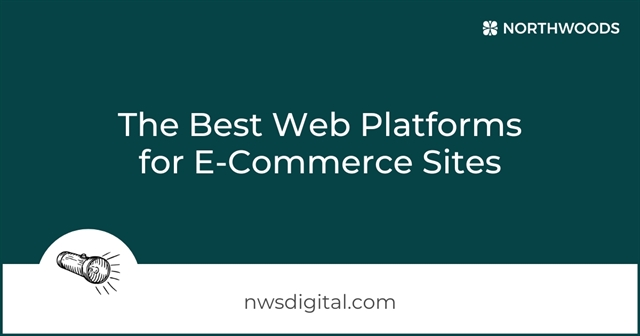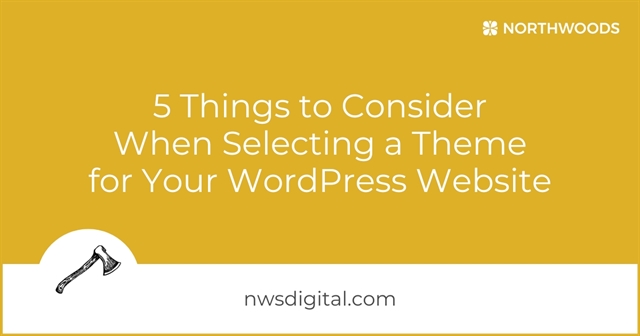This blog post is part of a series geared toward helping marketers realize the full potential of their WordPress websites.
What’s in your WordPress toolbox?
WordPress offers a massive – even bewildering – library of plugins that can help you elevate your online presence and give your site visitors a supercharged experience. But how do you pick the right ones? Whether you're a B2B or B2C marketer, we can help.
You need these must-have WordPress plugins to streamline workflows, enhance functionality, and achieve your business goals.
Lead Generation Plugins: Capturing Qualified Leads
Every marketer understands the foundational necessity of generating high-quality leads. Plugins such as Gravity Forms, Ninja Forms, WPForms, and Contact Form 7 are the most popular in this space. These WordPress lead generators offer tools that make it easy to create visually appealing forms that can capture lead information. Widespread use of these four have prompted creation of addons that connect with third-party applications, including Salesforce, HubSpot, and other CRM Tools that help you manage your marketing efforts.
But you can’t merely plug in a plugin and forget about it. You must explore and understand it to utilize it fully. Without that extra effort, you’ll likely miss valuable leads. Learn all the bells and whistles, so you are sure to give potential customers the love and attention they deserve. They took the time to give you their contact information, so be sure to contact them.
Make sure you maintain these plugins, as well. Contact Form 7, while a decent forms builder application, often sits atop the list of most-hacked plugins. Be vigilant; run monthly updates and install security patches as they come out.
Social Media Integration Plugins: Amplifying Your Reach
Social media should engage your audience. Give your users every tool possible to share your content. WordPress plugins such as Smash Balloon Social Post Feed, Social Warfare, and Sassy Social Share integrate your social media channels with your website in highly creative and engaging ways.
A few social media icons above or below your content aren’t enough. Go all in and create engaging ways to let your users know that they should share your content. Make it easy for them to become your brand ambassadors. (Note: It helps to have good content in the first place. No one wants to share bad content.)
The plugins listed above can provide creative links that mesh with your design, to showcase your social media efforts and lead your users to share in multiple channels.
SEO Plugins: Boosting Your Online Visibility
Search engine optimization is a critical component of any successful digital marketing strategy. The most popular, Yoast SEO, All in One SEO, and Rank Math, offer user-friendly interfaces that show just what to add to a page to improve its SEO.
SEO tools, like any tool, required strategies for effective use. The most convenient path to such strategies might not be the most effective. Paid versions of the plugins listed above come with tools that can research keywords and provide recommended content via artificial intelligence. Review these added features carefully before buying; they aren’t always as good as advertised.
Consider tools that deliver more in-depth information, such as keywords and content recommendations. A paid subscription to SEM Rush will yield greater value in finding keywords and competitive analysis than the tools offered in the popular SEO plugins.
E-Commerce Plugins: Streamlining Online Sales
Every marketer wants quality, B2C-level site-user experience regardless of what the business sells or does. The key: Define precisely what sort of conversion your users need and that you want from them.
The highest order of conversion, of course, involves e-commerce. Many e-commerce-like tools are available for WordPress.
- WooCommerce is the biggest player in e-commerce in WordPress world. We recommend it for anyone planning to sell products directly from a website. Other plugins lack the maturity and connectivity of WooCommerce.
- If you just want a catalog experience with no purchase point, you can use any of several plugins to create a similar e-commerce experience. A mix of Advanced Custom Fields, Custom Post Type UI, and FacetWP can create a stunning, easy-to-use, filterable catalog of products and services for your users.
The schema – the strategy for organizing products and services on your site – is a key factor with any e-commerce-like setup. A well-organized list of products eases development of the catalog and, in turn, makes it easier for users to find what they seek.
Content Management Plugins: Elevating Your Editorial Workflow
Content is still king when it comes to SEO and engagement, and adding it to your WordPress website has never been easier.
Tools such as Gutenberg, Elementor, Beaver Builder, and Divi make it easy for anyone to create, organize, and publish high-quality, visually appealing content. These tools (and plugins like them) work in various ways, but all offer intuitive, drag-and-drop interfaces, simple content modules, and customizable templates that remove the need for an advanced degree in HTML, CSS, or other development languages.
Does it still help to have some background in a development language? Yes. But it’s not required, so these tools leave no excuse for failure to optimize or add content to your website. But, again, they’re just tools. To wield them effectively, B2B and B2C marketers still must do their homework: Research how users search for products and services and use that research to guide creation of strategic content published on the website. Without a strategy, content is just noise.
Key factor: Remember that page-builder plugins are the last piece of the overall website puzzle. Successful marketers understand that the page-builder works with SEO plugins to draw traffic, with social media plugins to increase engagement, and with forms plugins to convert visitors into clients.
Conclusion
So, now you know all you need to know about WordPress plugins, right?
Wrong. We’ve just scratched the surface deeply enough to cover some essentials. But leveraging these essential plugins will lay the foundation for streamlining your workflows, enhancing your user engagement, and converting users.
The big takeaway here might not be the plugins themselves, but the strategies they serve. They’re just tools. To use them wisely, always research, strategize, and then implement plans for plugins, content, and marketing.
Need help with your WordPress website? Our expert WordPress team can help you get the most from your website. Reach out to us today!
Related Blog Posts

Simply installing a plugin won’t solve the riddle of WordPress SEO. Marketers must combine manual and automated processes with a variety of tools. Here's how.

We’ve broken down some of the most popular e-commerce tools by usability, scale, and technical capacity so you can make the best choice for your business.

A theme is responsible for the layout, templates, styles, and other design elements of your website. Here are the five key things to consider when selecting a WordPress theme.